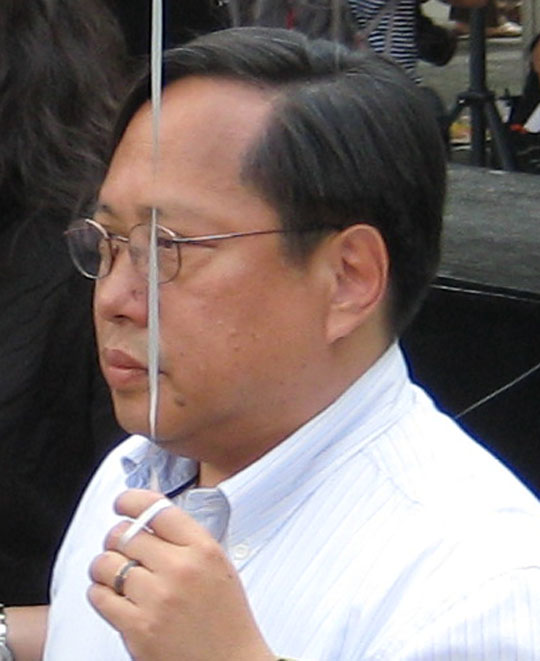There was a lot of excitement last Sunday 9 September as Hong Kong went to the polls to vote into power the 70-member Legislative Council, a body stacked with “functional constituencies” that give pro-Beijing parties a guaranteed majority. However, 35 seats are elected in geographical constituencies ranging from 5 to 9 seats that use closed-list proportional representation. Specifically, Hong Kong uses the Largest Remainder or Hare quota sysem.
The main contenders can be seen as those who speak of democracy and advocate an early implementation of the one-man-one-vote system to elect Legco, and, the other group that allows Beijing to dictate terms on when full voting democracy is installed in Hong Kong. The latter are in no hurry to push the system and would rather garner the benefits and support of the Central Government and the local government’s favours than stick their collective necks out.
While the pro-Beijing camp are pretty much all-of-one (not really) the democratic camp is well divided, thus Albert Ho resigned, hoping some other leader figure could do better at pulling the troops together.
The turnout was much bigger than four years ago, but the outcome was identical. The across-the-board or pan-democrats won 27 of the 70 seats, as against their 23 of 60 seats in 2008. With more than a third of the seats, they keep their veto power.
The two biggest pan-democratic parties – the Democratic and Civic parties – won a total of 502,227 votes, while the Democratic Alliance for the Betterment and Progress of Hong Kong (DAB) received 366,160 votes. However, the democratic parties combined gained only 12 seats compared to 13 for DAB. This reflected their better understanding and co-operation in organising the lists of candidates.
This was seen in New Territories West district, with nine seats up for grabs, the Democratic Party failed to win even one. Fielding two lists, one headed by former chairman Lee Wing-tat and the other by his wife, Josephine Chan Shu-ying. Lee got 32,792 votes, under 1,000 short of victory.
The problem was the type of proportional representation system used in Hong Kong. The choice of the Hare quota and highest-remainders system was especially helpful to pro-Beijing parties like the DAB. While the basic PR system is highly democratic, selecting the D’hont system would have forestalled those Democratic Party misadventures. The beauty of the PR system is in bringing into the fold minority parties thus great all-around participation is gained and that is what real democracy is all about. However, that lack of refinement meant Big trouble in Little China.
Reporter Frank Ching says splits in the pan-democratic camp have led to the rise of radicalism, and moderates need to regain their lost ground. But we are not in moderate times. Mr Ching says, “Part of the problem with Hong Kong’s electoral system is that it rewards small parties. This has led to the fracturing of the Democratic Party, once the biggest. Today, there are groups such as the Labour Party, People Power and the NeoDemocrats, the last of which has but a single seat in Legco. Along with small parties has come the rise in radicalism. In this election, radicals have increased their number from three to five…”
However, other views would have it that spreading the bread across the waters like this is just what democracy is all about but yes, the consequences can be imagined for Chief Executive Leung Chun-ying. That’s why he gets that enormous salary!
Joseph Wong Wing-ping, formerly secretary for the civil service, commented to the media, “This particular election is symbolic in two ways. First, it is a one-person-one-vote election open to some three million voters in Hong Kong. Second, it is essentially a three-on-three match between the pan-democrats and the pro-establishment faithful in the DAB and the Federation of Trade Unions (FTU). The three democratic candidates were united in championing the cause of safeguarding Hong Kong’s core values, which they regarded as being under siege by the central government and the Leung Chun-ying administration. The implementation of a national education course in schools, a plan that was abandoned by the government only a day before the election, was cited repeatedly as a brainwashing device in debates.”
Mr Wong also holds that the proof voters were concerned about protecting such Hong Kong values as the rule of law can be found in the election results of the traditional functional constituencies. He sees it that overall, the election results won’t make it easier for the government to implement its agenda.
That the pan-democrats hold a majority, albeit by one, in the geographical constituency group means that any attempt to amend the Standing Orders of the Legislative Council to prohibit or restrict the unruly behaviour or delaying tactics of the radical members will not succeed under the separate voting procedure. That the pan-democrats hold 27 seats, more than a third of the total number of 70 seats, means further electoral reform towards universal suffrage will be intensely scrutinised.
Not wanting to add to the excitement the authorities waited until the election fever subsided before sending in the bailiffs to forcibly remove the Occupy Central group from under the HSBC Building in Central Hong Kong. Also, the mass protests of the Scholarism student group was ended the day before the elections, in their Central Office hunger strike and actions against an unwarranted civic education curriculam for all education institutions.
Otherwise! Life goes on as normal in a hyper-active Hong Kong.






